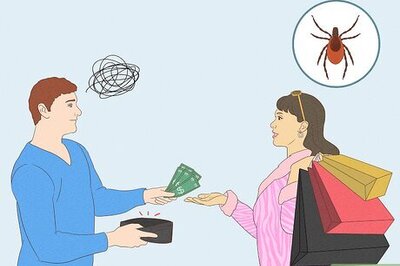
views
Bipolar disorder, also formerly known as manic depression, is a medical condition that creates intense fluctuations in a person’s mood and energy level. This lifelong mood disorder also tends to affect thinking, behaviour, judgment, and sleep pattern in human beings. The emotional tendency of a person suffering from bipolar disorder switches from too euphoric to extremely sad, and unusually irritable.
The episodes experienced can last for days, weeks, or even months, they can occur rarely or frequently. The symptoms tend to differ in every case, but they affect the ability of a person to carry out day-to-day tasks. Here’s everything that you need to know about bipolar disorder.
Bipolar disorder symptoms
Manic episode
A manic episode is a term used to describe a period of unusually elevated or irritable mood of a person. The changes tend to be extreme which reflects in the way they think, talk, or feel emotions. In extreme conditions, manic episodes can result in hallucinations, delusions, or other severe psychotic disorders like schizophrenia.
Depressive episode
Depressive episodes are those when a person experiences a sudden dip and sadness in their emotions. The symptoms can be identified as feeling extremely tired, exhausted, feeling worthless, and hopeless.
Types of bipolar disorder
Bipolar I disorder:
Patients suffering from bipolar I disorder have undergone one or more manic episodes. They can also experience both mania and depression, but the detection of a depressive episode isn’t necessary for this diagnosis. The symptoms can last for a week or two and can hamper a person’s capability of performing daily activities.
Bipolar II disorder:
People who experience depressive episodes fall under the bracket of bipolar II disorder. However, they’ve never had a full manic episode.
Cyclothymic disorder:
People who have chronically unstable moods suffer from the cyclothymic disorder. They’ve experienced mild depression for at least two years though they may feel normal for a brief period.
Other:
When a person doesn’t suffer from Bipolar I, II, or cyclothymia, they tend to fall under this bracket or specified and unspecified condition.
Causes and treatment
Bipolar disorder occurs due to a combination of genetics and environmental factors that alter brain structure, however, the exact cause of the disease is not known yet. The treatment of bipolar disorder can be lifelong and often involves medications and psychotherapy.
Read all the Latest Lifestyle News here




















Comments
0 comment